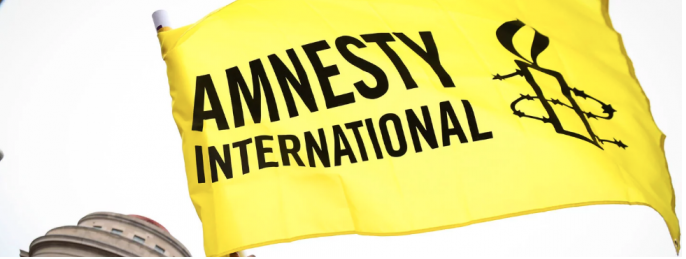Responding to plans announced by U.S. President Donald J. Trump to sign an executive order “to temporarily suspend immigration into the United States”, Joanne Lin, the national advocacy director of Amnesty International USA, said:
“While the scope of Trump’s new proposed policy is unclear, the message it sends is: the President is manipulating a pandemic to further the bigotry and xenophobia that have been hallmarks of his presidency from day one.
“We are one country and there is no way we could address the spread of COVID-19 without the unending efforts of immigrants providing healthcare and home aid, staffing grocery stores, and producing food, whose work has been deemed essential while they are simultaneously struggling to access to care, support, and services.
“As the United States leads in COVID cases in the world, measures that health experts agree will stop the spread, like access to widespread testing and self-isolation, have been derided and undermined by Trump. If President Trump wants to limit the spread and the deaths occurring under his leadership, now is the time to look to health experts, and not point fingers at immigrants.”
Background and context
Amnesty International has documented anti-immigrant policies enacted by President Trump since his first week in office, when he signed what has become known as the Muslim ban and set into motion a series of events that continue to leave families in uncertainty and danger to this day. Amnesty International USA has stood against the Muslim ban from its first iteration, calling on Congress to nullify it through passage of the NO BAN Act (H.R. 2214 / S. 1123). Amnesty USA’s members from around the country mobilized against the ban in states across the country, participated in a protest march and rally in DC, delivered a nationwide petition to Congressional leadership, and galvanized communities in airports and conducted gatherings to inform people of their rights.
In the aftermath of the ban, AIUSA created a dozen case studies of the harms caused to individuals and families from Yemen, Iran, Sudan and elsewhere and documented the ways lives had been upended by the ban, and in 2019, Amnesty International USA’s researchers traveled to Lebanon and Jordan to conduct nearly 50 interviews with refugees that as a result of the ban, have been stranded in countries where they face restrictive policies, increasingly hostile environments, and lack the same rights as permanent residents or citizens. AIUSA’s report, “The Mountain is in Front of Us and the Sea is Behind Us,” documented how Trump’s discriminatory policies have decimated refugee resettlement from Lebanon and Jordan, which host the highest number of refugees in the world relative to their populations. Amnesty International has also detailed how returns of refugees from Lebanon to Syria is premature and, in late 2019, published a further report, Sent to a war zone: Turkey’s illegal deportations of Syrian refugees, detailing how Turkey has deported Syrian refugees to Syria where they are at grave risk.
Amnesty International has documented how President Trump’s policy of family separation has in some cases constituted torture as defined under U.S. and international law, documented the negligent care and ill treatment of people seeking safety in the U.S. further jeopardizing them during COVID-19, denounced the Remain in Mexico policy which has pushed asylum-seekers into dangerous and precarious conditions in Mexico, and spoken out against asylum agreements and asylum bans that cut off access to the U.S. asylum system.
More on COVID-19 and international human rights: https://www.amnestyusa.org/distant-but-together-responding-to-covid-19/






















